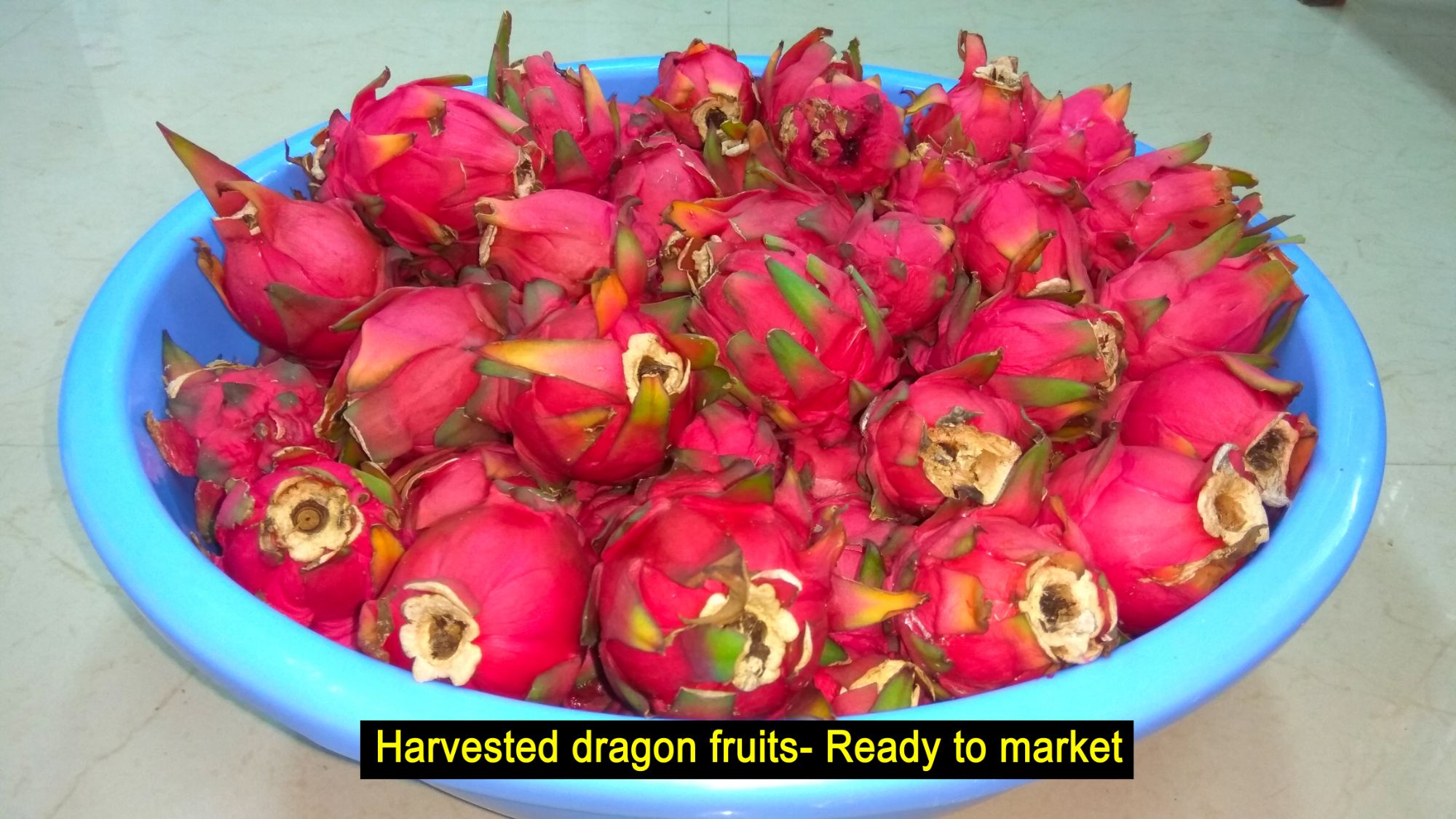Dragon fruit (Kamalam)– A potential super fruit for Bay Islands

There is an increasing global demand for traditional and rare fruits, which increases the gastronomic diversity as they provide new flavors, aromas, colors, and attractive appearance for consumers. One such fruit of wide acceptance by the consumers is the Pitaya or dragon fruit (Hylocereus sp). It is naturally distributed in dry tropical climates, which produces a rare, attractive, and exquisite fruit. The most valuable and commonly used edible part of dragon fruit is the fruit pulp which is eaten raw as a fresh fruit. Dragon fruit is reported to possess medicinal properties and is considered as a health fruit. The fruits are hypoglycemic, diuretic, wound disinfectant, tumor dissolution and dysentery care. The red fleshed variety of dragon fruit is rich in antioxidants. It prevents colon cancer and diabetes.Neutralizes toxic substances like heavy metals, reduce cholesterol and high blood pressure.It controls high sugar level.The fruits are rich in Vitamin C, phosphorus and calcium which helps to develop strong bones, teeth and skin. The oligosaccharides from the fruits have pre biotic characteristics, resistance to acid conditions in the stomach and partial resistance to human α amylase and they also promote lactobacillus. Pitaya seed oil is a potential source of natural antioxidants and contains phenolics. The pitaya seeds are rich in essential fatty acids with an exceptional level of linoleic acid. Dragon fruits are consumed as fresh fruits or could be chilled, either sliced or scooped with a spoon. It is widely used in fruit salads in restaurants. There are a number of processed products that could be prepared form dragon fruit like juices, wine, sherbets, jam, syrup, ice cream, yogurt, jelly, preserve, candy and pastries. The red and pink pulp f dragon fruit can be used as a food colouring agent and as a raw material for colouring industry.
Benefit: Dragon fruit could be an asset to small holders and entrepreneurs of medium and large-scale plantations. It is a fast return perennial fruit crop and is an ideal crop of future in Bay Islands.
Source :Contact person with Name, Designation e-mail and phone no: Dr. K. Abirami, Senior Scientist, E-mail:K.Abirami@icar.gov.in, Mob: 9933278631
